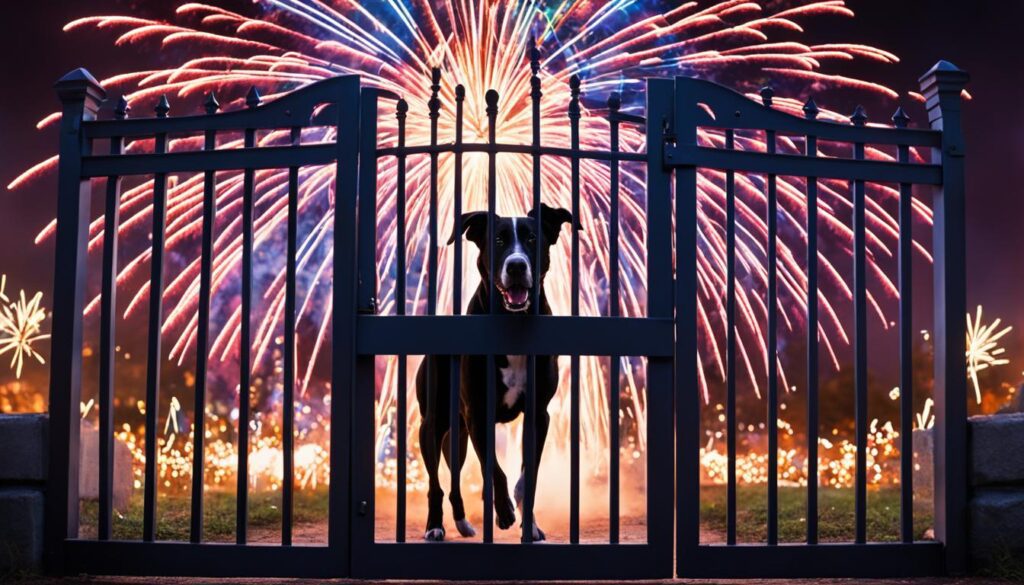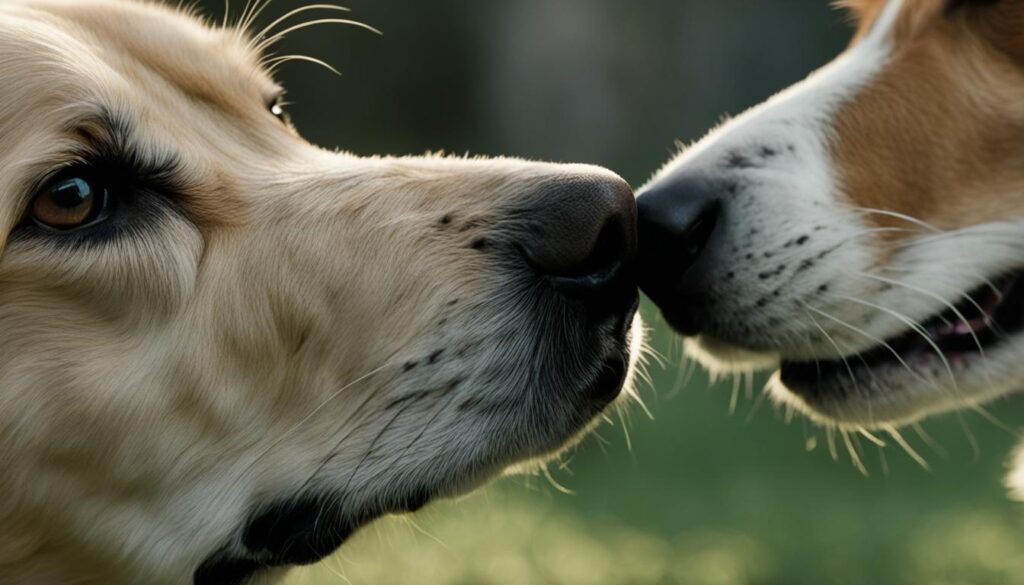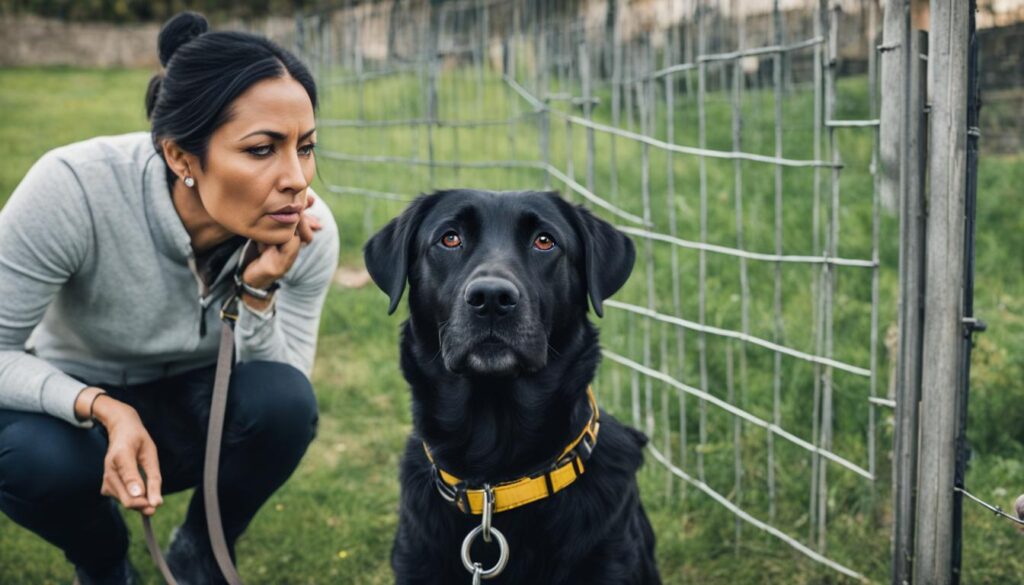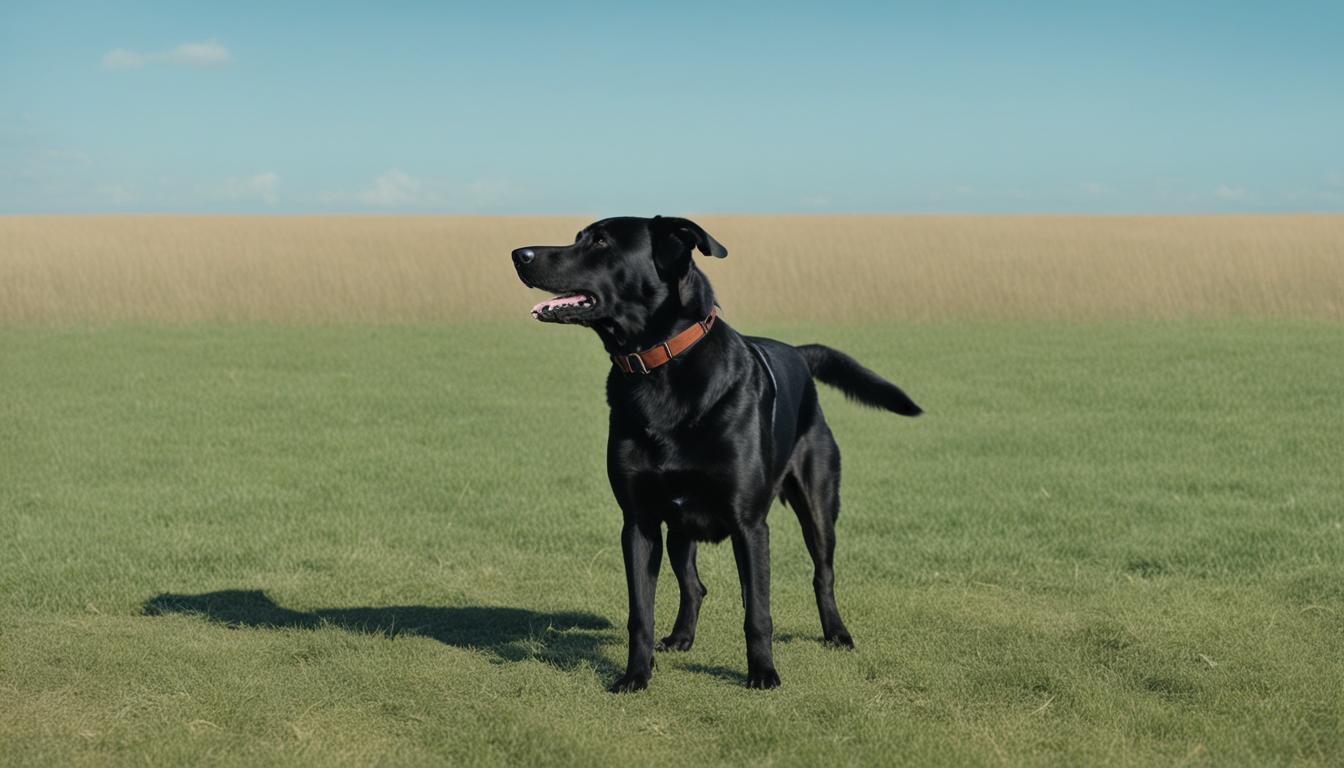Dogs running away can be a frightening experience for pet parents. There are various reasons why dogs may choose to flee, including fear, separation anxiety, mating instinct, boredom, hunting instinct, and unfamiliar surroundings. These factors can lead to a dog's flight response, causing them to run away. It is important to understand these reasons and take preventive measures to ensure the safety of your furry friend.
So let's dive into Why Does My Dog Run From Me…….
Key Takeaways: Why Does My Dog Run From Me
- Understanding the reasons why your dog may run away is crucial for preventing escapes.
- Fear, separation anxiety, mating instinct, boredom, hunting instinct, and unfamiliar surroundings can all contribute to a dog's flight response.
- Preventive measures, such as securing your home and yard, providing mental stimulation, and exercise, and using a GPS dog tracker, can help prevent your dog from running away.
- Strengthening your bond with your dog through positive reinforcement, training, and spending quality time together can reduce the likelihood of them running away.
- Always prioritize the safety and well-being of your dog by being prepared and taking appropriate precautions.
Common Triggers for Dogs Running Away
Dogs are incredible creatures with their own set of fears and anxieties. Various triggers can cause your furry companion to run away, putting their safety at risk. By understanding these common triggers and taking appropriate measures, you can help prevent your dog from running away and ensure their well-being.
Fear in Dogs
Fear plays a significant role in a dog's behavior, especially when it comes to running away. Loud noises, such as thunderstorms or fireworks, can startle dogs and trigger a flight response. Dogs have a heightened sense of hearing, making them particularly sensitive to these sudden and booming sounds. The fear induced by these noises can often compel them to escape their environment in search of safety.
Fireworks and 4th of July


Fireworks are a major reason why many dogs go missing, especially around the 4th of July. The loud explosions and bright lights can be extremely overwhelming and terrifying for dogs. The booms, flashes, and unfamiliar smells can cause panic in your pet, leading them to dash away from home. It's important to keep your dog secure during firework displays to prevent them from getting scared and running away.
Separation Anxiety
“Your dog may run away when they experience separation anxiety. This condition typically arises when dogs are left alone for extended periods, causing intense distress and fear of abandonment. Dogs with separation anxiety may try to escape the house in an attempt to find their owners. Recognizing and addressing this anxiety through proper training, mental stimulation, and creating a safe environment can help alleviate their need to run away.”
Separation anxiety can lead dogs to engage in destructive behaviors, including attempting to escape their confinement. If your dog exhibits signs of separation anxiety, such as excessive barking, destructive chewing, or inappropriate elimination when left alone, it's essential to seek professional guidance to help address their anxiety.
By understanding these common triggers and taking the necessary steps to alleviate your dog's fears and anxieties, you can help prevent them from running away. Providing a safe and secure environment, offering reassurance, and addressing separation anxiety through training can significantly contribute to your dog's well-being and reduce the risk of them fleeing.
Natural Instincts and Factors that Drive Dogs to Run Away
Dogs have innate instincts and factors that can contribute to their tendency to run away. Understanding these natural behaviors can help pet owners take appropriate precautions to prevent their dogs from escaping.
Mating Instinct
One of the primary reasons dogs run away is their strong mating instinct. Unaltered or intact dogs, especially males, may escape in search of a mate. The urge to reproduce is particularly strong in sexually mature dogs, and they may become determined to find a potential partner.


Hunting Instinct and Prey Drive
Another instinct that can lead to dogs running away is the hunting instinct and prey drive. Certain dog breeds have been specifically bred for hunting purposes and possess a strong desire to chase down small animals. When they catch a scent or spot a potential prey, their natural instincts kick in, and they may venture away from their owners in pursuit of their target.
Unfamiliar Surroundings
Dogs may also run away when they find themselves in unfamiliar surroundings. This can occur during vacations or when they are relocated to a new location. The unfamiliar environment can be overwhelming for dogs, and their natural instinct may be to explore their surroundings, potentially leading to them running away.
By recognizing and understanding these natural instincts and factors, pet owners can take appropriate precautions to prevent their dogs from running away. Spaying or neutering dogs can help alleviate the mating instinct, while training and socialization can help manage hunting instincts and prey drive. Ensuring a secure and supervised environment, especially in unfamiliar surroundings, can also minimize the risk of dogs running away.
Preventing Dogs from Running Away
To ensure the safety and security of your furry friend, there are several steps you can take to prevent your dog from running away. By implementing these measures, you can create a safe environment that minimizes the chances of escape and keeps your dog happy and content.
Secure Your Home and Yard
One of the most important steps in preventing dogs from running away is to secure your home and yard effectively. Installing tall fences around your property can help keep your dog contained and prevent them from wandering off. Additionally, consider adding coyote rollers to the top of the fence to deter your dog from jumping over. These rollers make it difficult for dogs to gain traction and scale the fence.
Here is an example of a table that compares different types of fences:
| Fence Type | Description |
|---|---|
| Chain Link Fence | Durable and provides visibility, but dogs can potentially climb over |
| Wooden Fence | Provides privacy and good containment, but may require maintenance |
| Vinyl Fence | Low-maintenance and visually appealing, suitable for most dogs |
| Electric Fence | Offers a psychological barrier, but requires training to be effective |
Keep Your Dog Entertained and Happy
Boredom can often be a driving factor for dogs wanting to escape. To prevent this, make sure your dog is entertained, active, and happy in their home environment. Providing daily exercise, such as walks or playtime, is essential for keeping your dog physically and mentally stimulated. Engaging toys, puzzle feeders, and interactive games can also help keep their minds occupied and prevent them from seeking ways to escape.
Plan Ahead for Natural Instincts
Understanding and planning for your dog's natural instincts can be crucial in preventing them from running away. For dogs with a strong mating instinct, consider having your dog spayed or neutered to help reduce the urge to roam and find a mate. If your dog has a high prey drive or hunting instinct, ensure they are securely leashed or have a well-enclosed area to play and explore. By preemptively addressing these natural instincts, you can reduce the likelihood of escape.
Remember, accidents can happen, and it's essential to be prepared in case your dog does run away. Always have a recent photo of your dog and keep their identification updated with your current contact information. Microchipping your dog and registering the chip with your information can also increase the chances of a reunion if they go missing.
By taking proactive measures to prevent dogs from running away, you can create a safe and happy environment for your furry companion. Secure your home and yard, keep your dog entertained and stimulated, and plan for their natural instincts to ensure their safety and your peace of mind.


Conclusion
Understanding why dogs run away and taking preventive measures are essential to ensure the safety of your beloved pet. By addressing common triggers, considering natural instincts, and implementing strategies to prevent your dog from escaping, you can minimize the risk of them running away.
One effective way to enhance your dog's safety is by using a GPS dog tracker. This device provides added security and peace of mind by allowing you to track your dog's location in real-time, giving you the ability to quickly find them if they do happen to run away.
Furthermore, strengthening the bond with your dog plays a crucial role in reducing the likelihood of escape. Regular exercise, mental stimulation, and positive reinforcement are key ingredients in keeping your dog happy and content. A strong bond between you and your furry companion will make them less inclined to run away, as they will feel more fulfilled and connected to you.
Remember, preventing your dog from running away is not only about their safety, but it also contributes to their overall well-being. By understanding the reasons behind their elusive behavior and implementing the necessary precautions, you can create a safer environment for your dog and nurture the unbreakable bond you share.
FAQ
Why does my dog run away from me?
Dogs may run away for various reasons, including fear, separation anxiety, mating instinct, boredom, hunting instinct, and unfamiliar surroundings.
What are some common triggers for dogs running away?
Dogs may run away when they experience fear or encounter common triggers such as loud noises, fireworks, or thunderstorms. Separation anxiety is another common trigger.
What natural instincts and factors can cause dogs to run away?
Dogs may run away due to their mating instinct, hunting instinct or prey drive, and when they find themselves in unfamiliar surroundings.
How can I prevent my dog from running away?
You can prevent your dog from running away by securing your home and yard, keeping your dog entertained and happy, and planning ahead for mating and hunting instincts.





